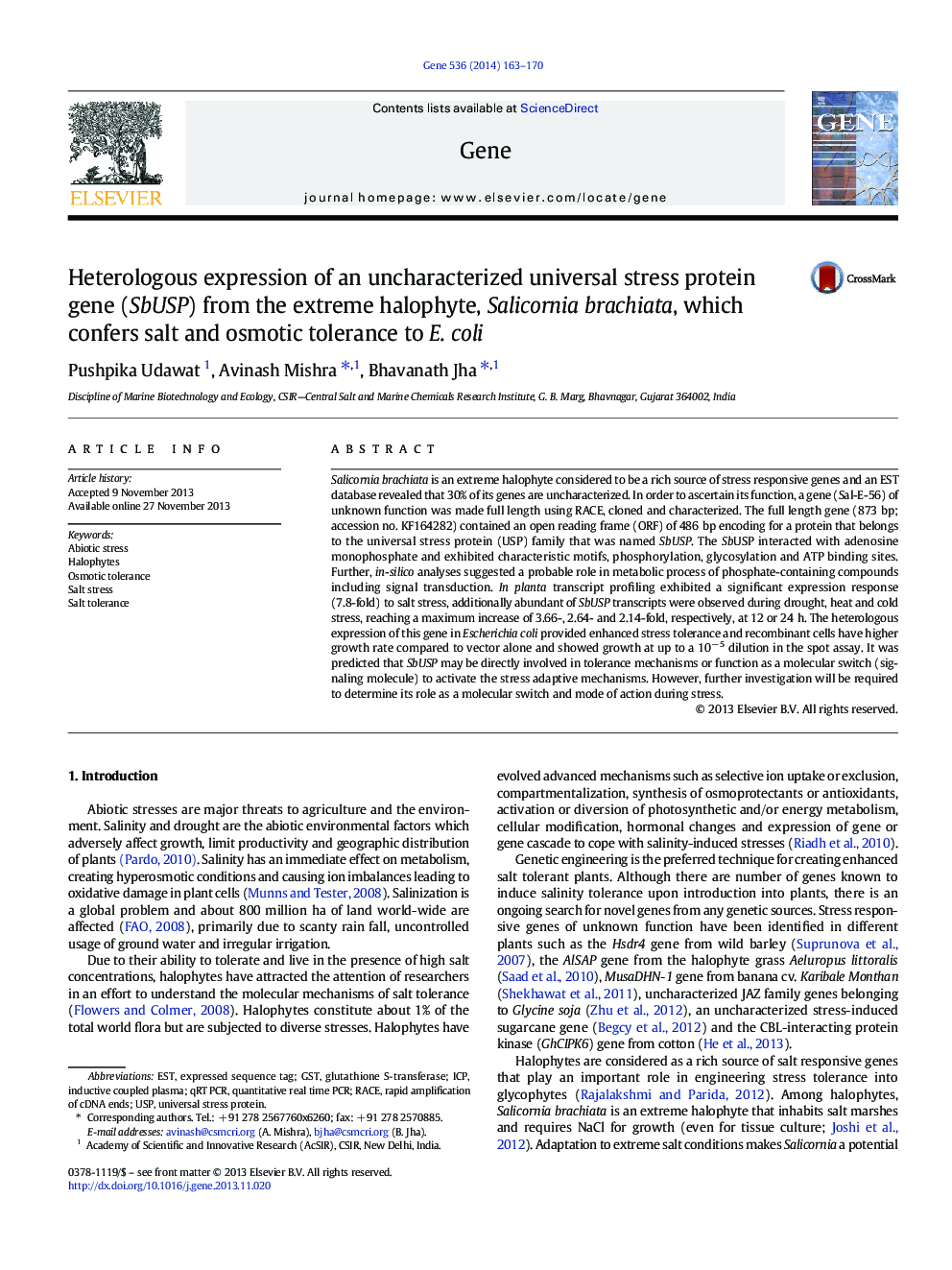| کد مقاله | کد نشریه | سال انتشار | مقاله انگلیسی | نسخه تمام متن |
|---|---|---|---|---|
| 2816639 | 1159946 | 2014 | 8 صفحه PDF | دانلود رایگان |

• SbUSP an uncharacterized salt responsive gene cloned from a halophyte S. brachiata
• The gene encoding a protein belongs to universal stress protein (USP) family
• SbUSP showed significant expression response to salt, drought, heat & cold stress
• Heterologous expression of the gene provided enhanced stress tolerance to E. coli
• SbUSP may play as a molecular switch to activate the stress adaptive mechanism
Salicornia brachiata is an extreme halophyte considered to be a rich source of stress responsive genes and an EST database revealed that 30% of its genes are uncharacterized. In order to ascertain its function, a gene (Sal-E-56) of unknown function was made full length using RACE, cloned and characterized. The full length gene (873 bp; accession no. KF164282) contained an open reading frame (ORF) of 486 bp encoding for a protein that belongs to the universal stress protein (USP) family that was named SbUSP. The SbUSP interacted with adenosine monophosphate and exhibited characteristic motifs, phosphorylation, glycosylation and ATP binding sites. Further, in-silico analyses suggested a probable role in metabolic process of phosphate-containing compounds including signal transduction. In planta transcript profiling exhibited a significant expression response (7.8-fold) to salt stress, additionally abundant of SbUSP transcripts were observed during drought, heat and cold stress, reaching a maximum increase of 3.66-, 2.64- and 2.14-fold, respectively, at 12 or 24 h. The heterologous expression of this gene in Escherichia coli provided enhanced stress tolerance and recombinant cells have higher growth rate compared to vector alone and showed growth at up to a 10− 5 dilution in the spot assay. It was predicted that SbUSP may be directly involved in tolerance mechanisms or function as a molecular switch (signaling molecule) to activate the stress adaptive mechanisms. However, further investigation will be required to determine its role as a molecular switch and mode of action during stress.
Figure optionsDownload high-quality image (106 K)Download as PowerPoint slide
Journal: Gene - Volume 536, Issue 1, 15 February 2014, Pages 163–170